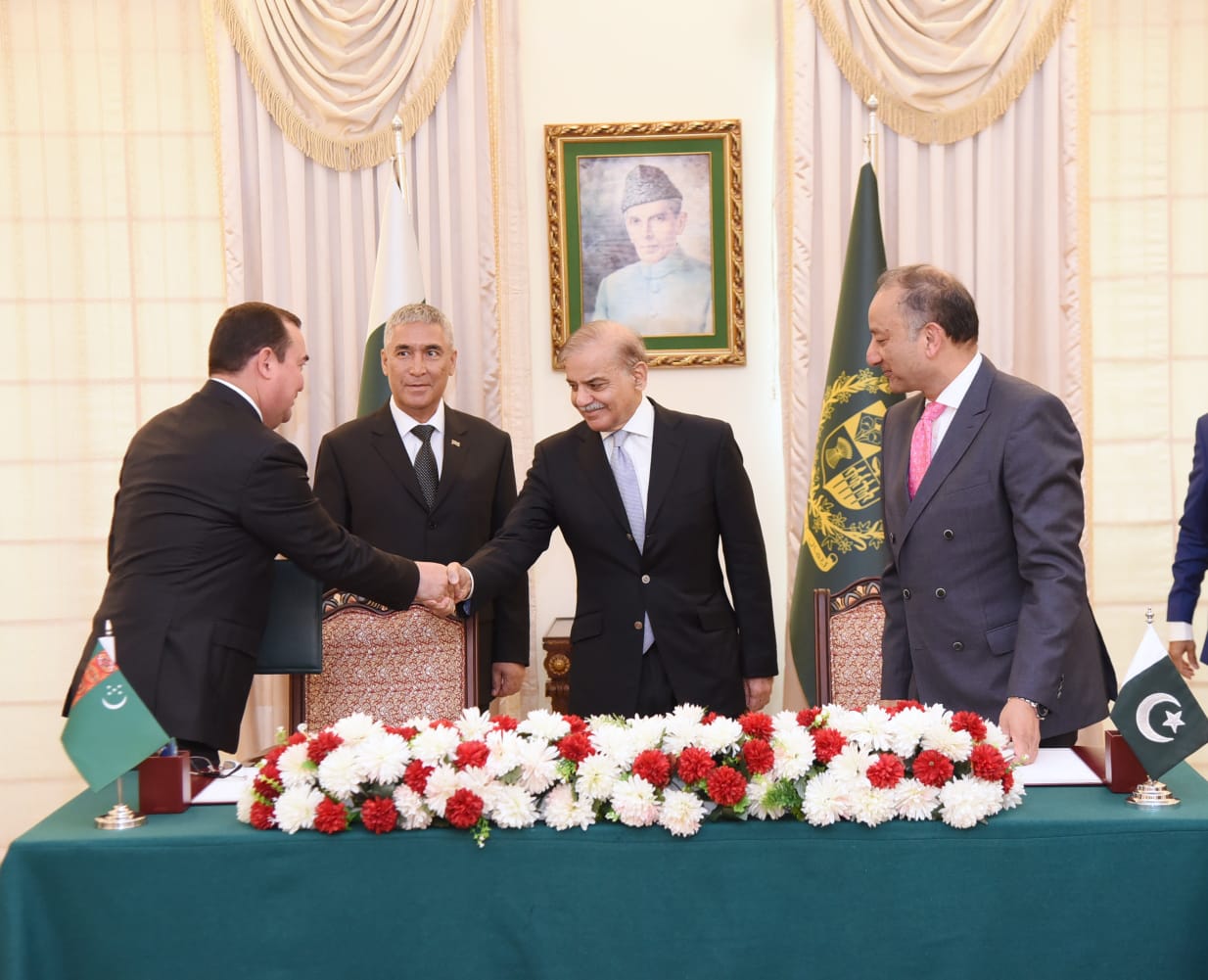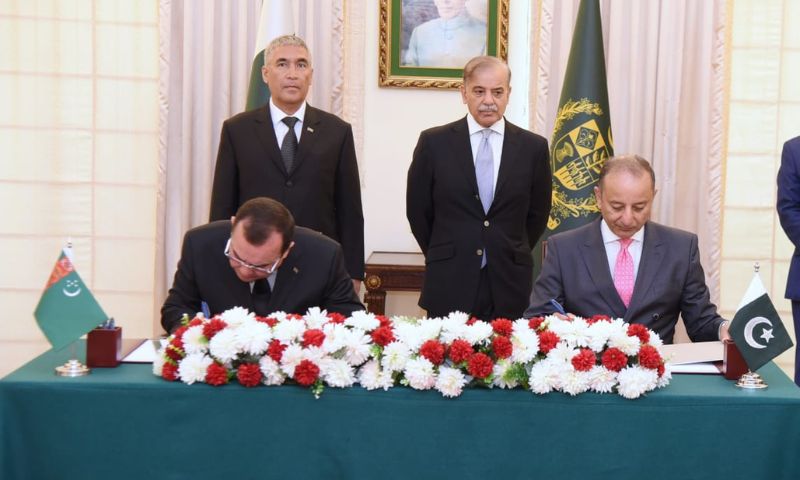ISLAMABAD: Prime Minister Shehbaz Sharif Thursday expressed confidence that the TAPI (Turkmenistan-Afghanistan-Pakistan-India) gas pipeline project would usher in an era of regional cooperation, development and prosperity.
Addressing at the signing ceremony of the TAPI Joint Implementation Plan here, the premier said the project was of utmost importance for the development of the four countries and the region.
Sharif said the project would help the region to secure natural gas with concrete assurances and mutually agreed terms and conditions. He mentioned that in view of the global situation, energy had become a real challenge. “For a developing country like Pakistan, there is a need for speedy actions to explore the options for energy,” he said.
The prime minister directed his team to do everything to pace up the planning and execution of the TAPI project. He said Pakistan and Turkmenistan were ready to expand relations in diverse areas and boost their cooperation.

On the occasion, the prime minister witnessed the signing of the TAP Joint Implementation Plan. State Minister for Petroleum Musadik Malik and Turkmenistan’s State Minister and Chairman of TurkmenGas, Maskat Babayev inked the accord.
A high-level delegation from Turkmenistan, led by State Minister and Chairman of Turkmengas, Maksat Babayev, held a meeting with the Pakistani delegation led by Minister of State for Petroleum, Musadik Malik on Wednesday.
The discussions focused on various aspects of the flagship TAPI gas pipeline project, highlighting Pakistan’s unwavering commitment to the project and acknowledging the energy potential that Turkmenistan holds. Malik believes that TAPI is not merely a pipeline but a transformation agenda for the region.
The TAPI Pipeline extends for approximately 1,600 kilometers from the Turkmenistan-Afghanistan border to the Pakistan-India border. At full capacity, the pipeline will transport 33 billion cubic meters (bcm) of natural gas annually from Turkmenistan to respective buyers in Afghanistan (5%), Pakistan (47.5%) and India (47.5%) during the 30-year commercial operations period. The Project comprises the procurement, installation and operation of the pipeline and related facilities within Pakistan and Afghanistan.
The project implementation is split into two phases: Phase 1: Afghanistan and Pakistan sections of the pipeline based on a free-flow transmission capacity of 11 billion bcm /annum; and Phase 2 six compressor stations along the Afghanistan and Pakistan sections to ramp up to the full gas transmission capacity of 33 bcm / annum.























